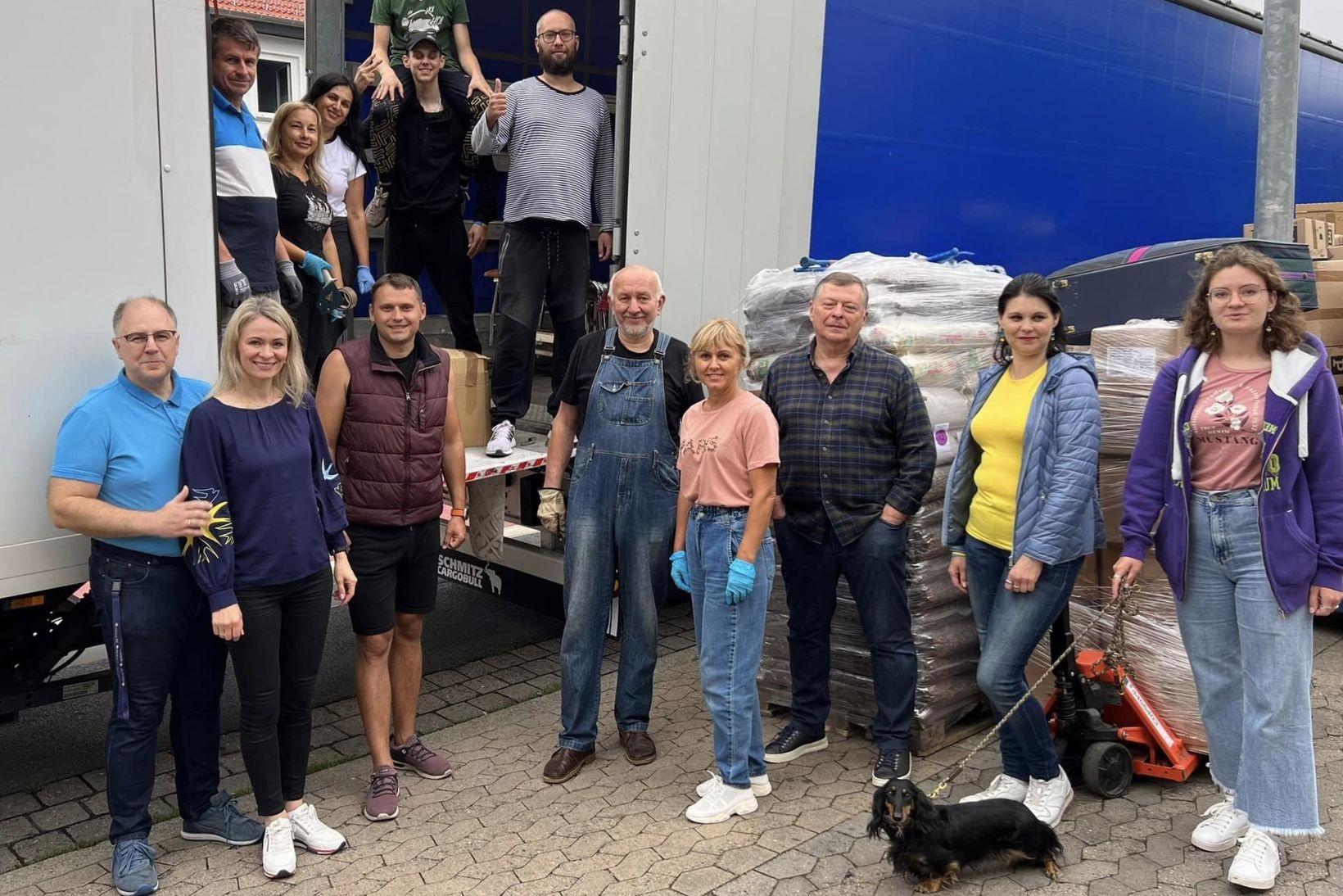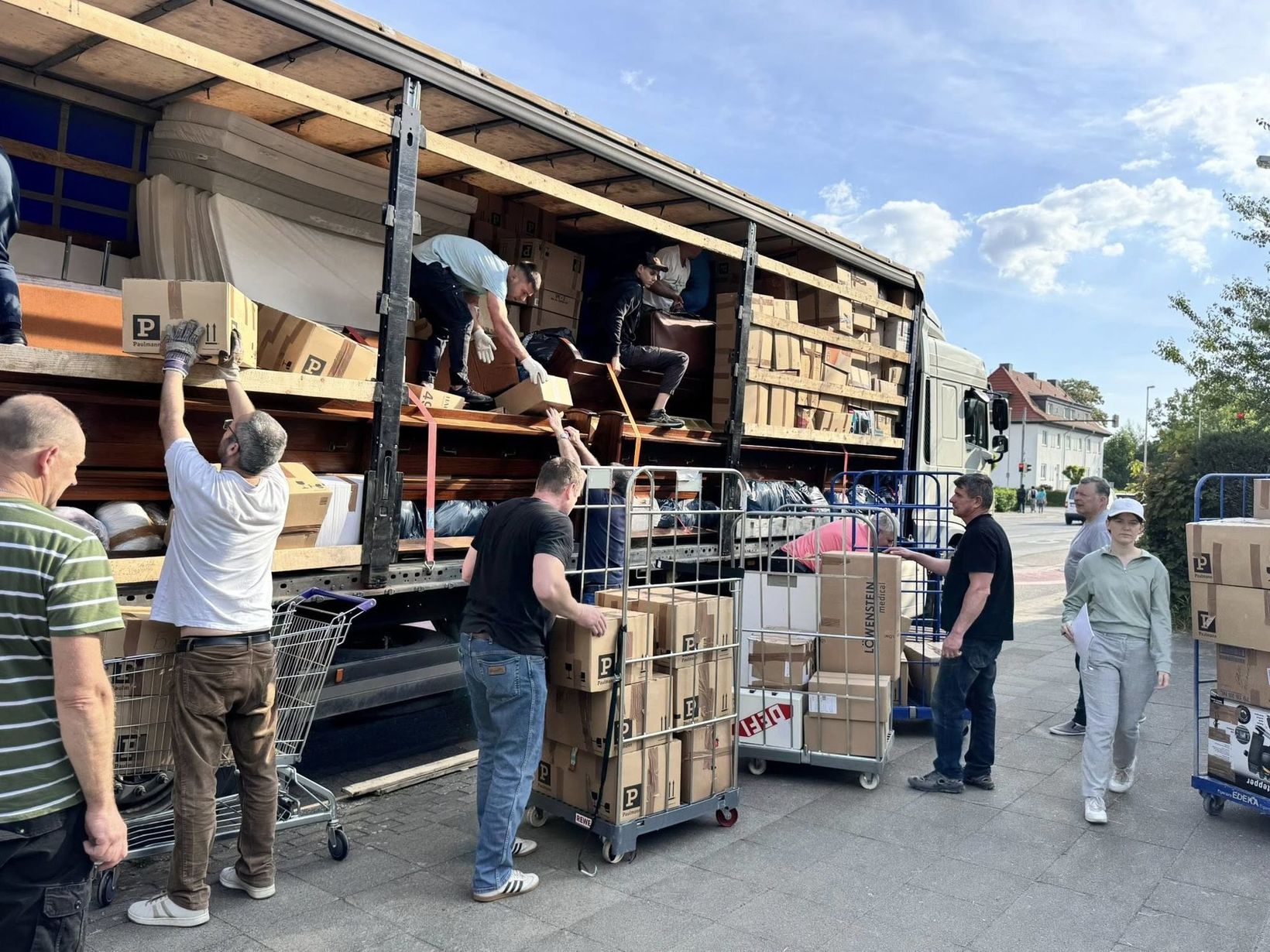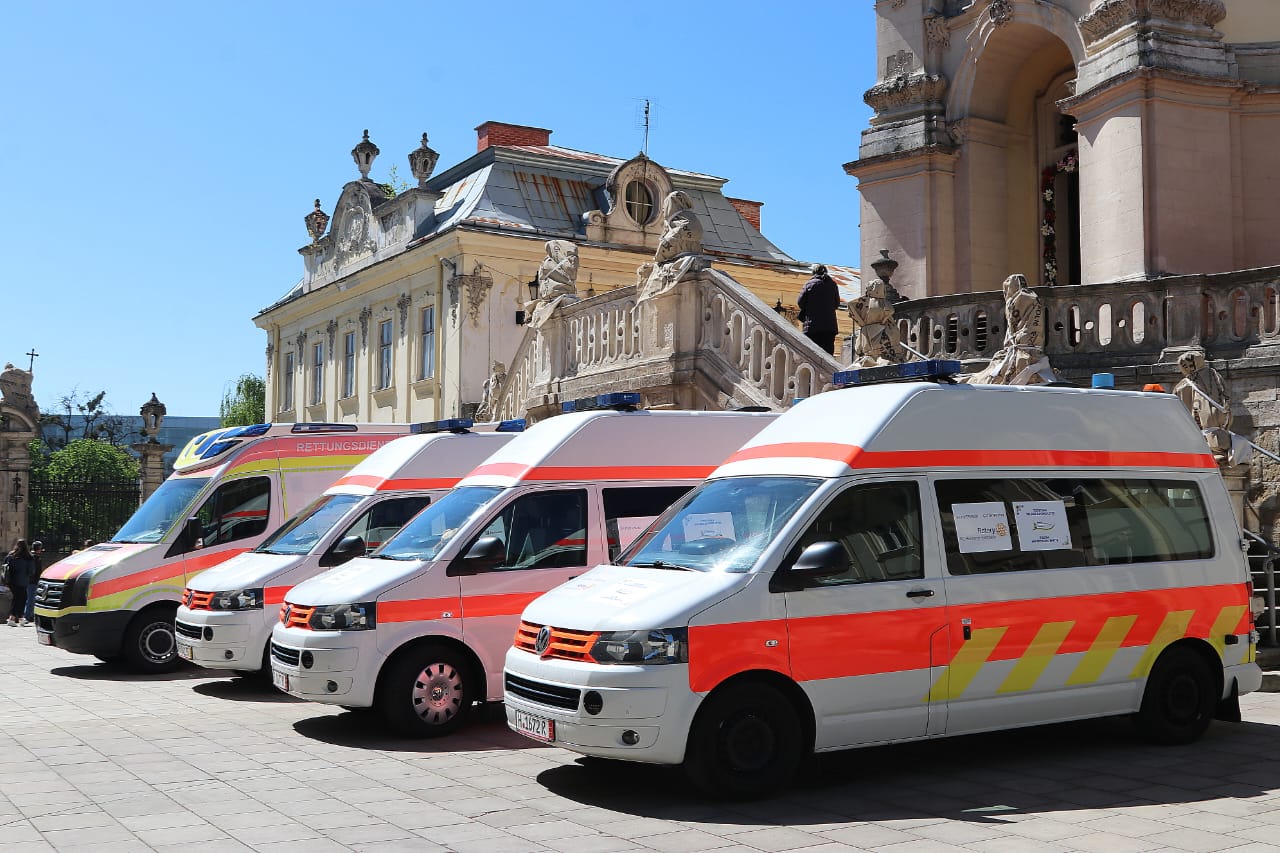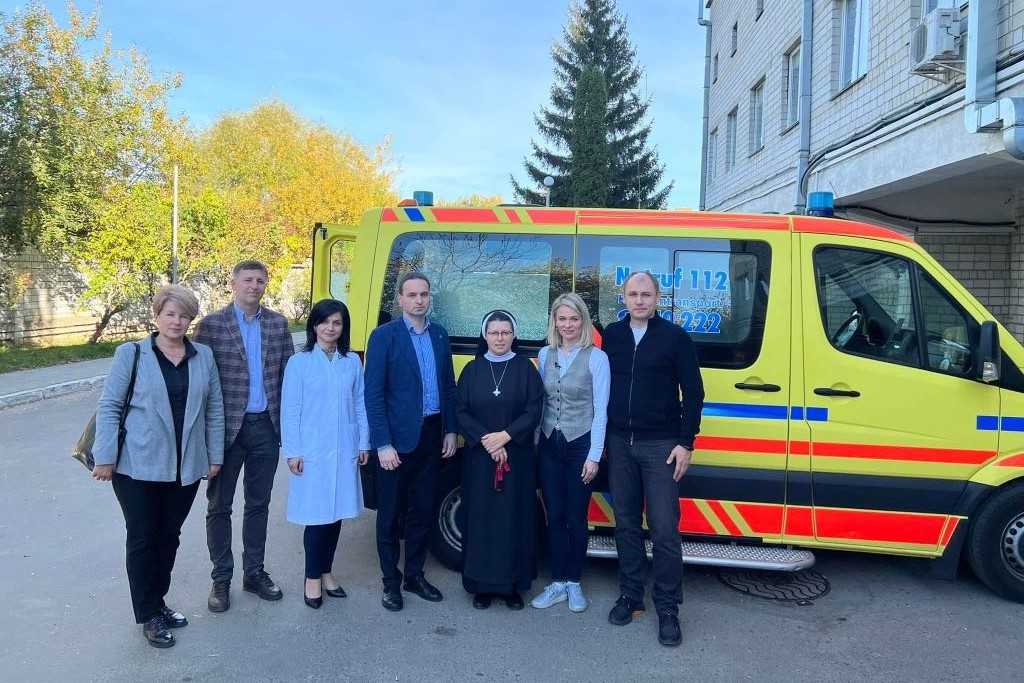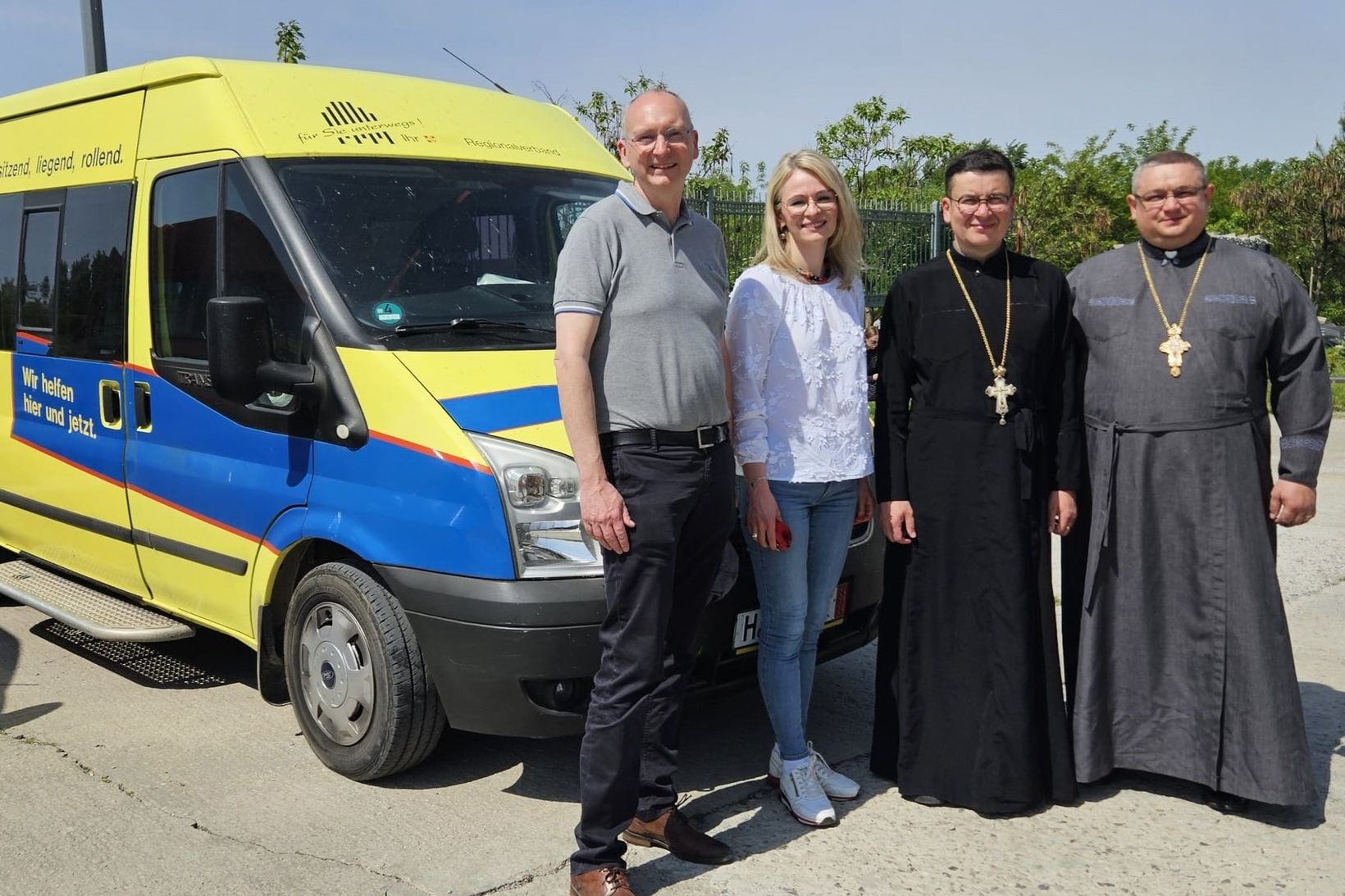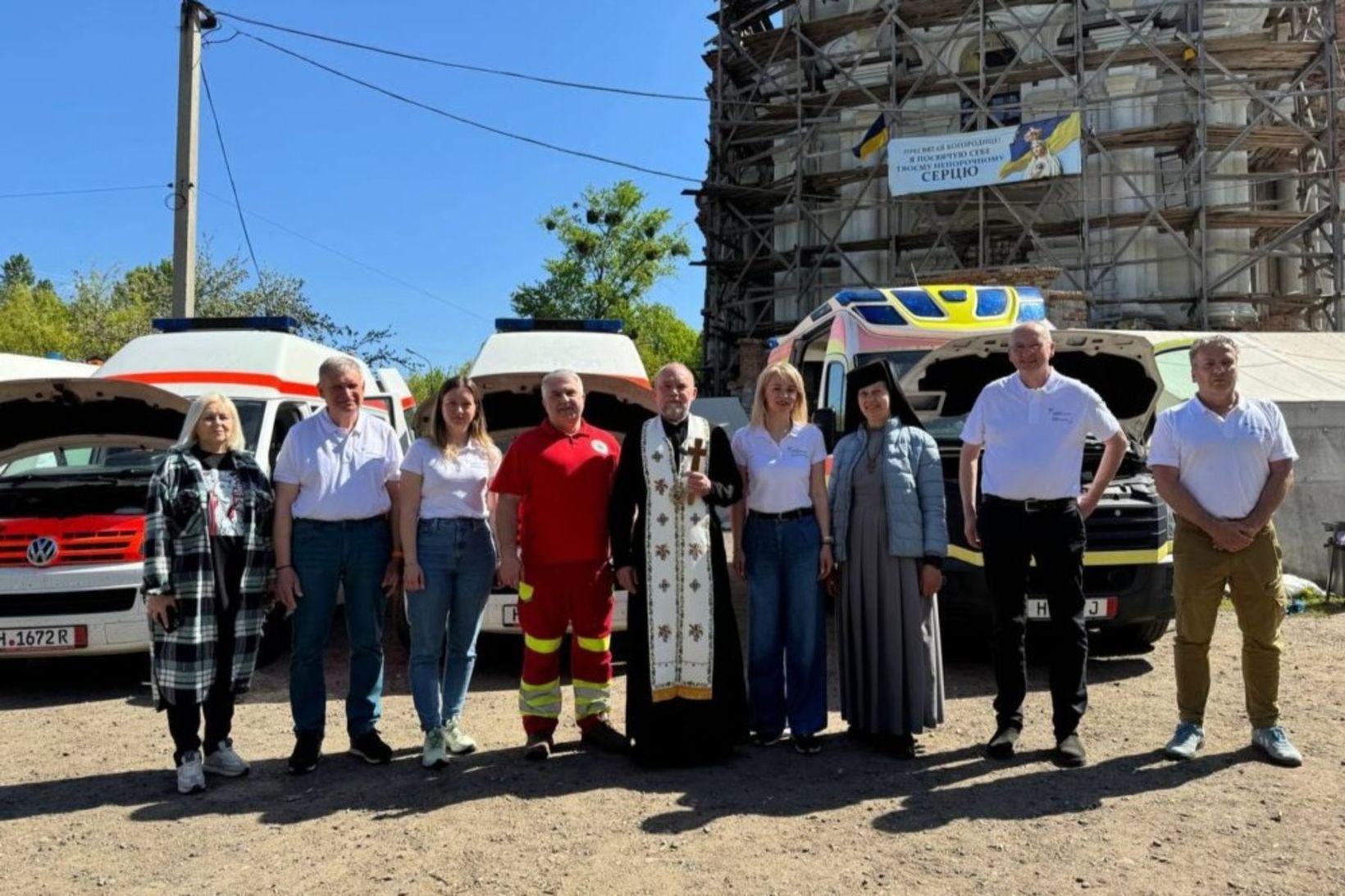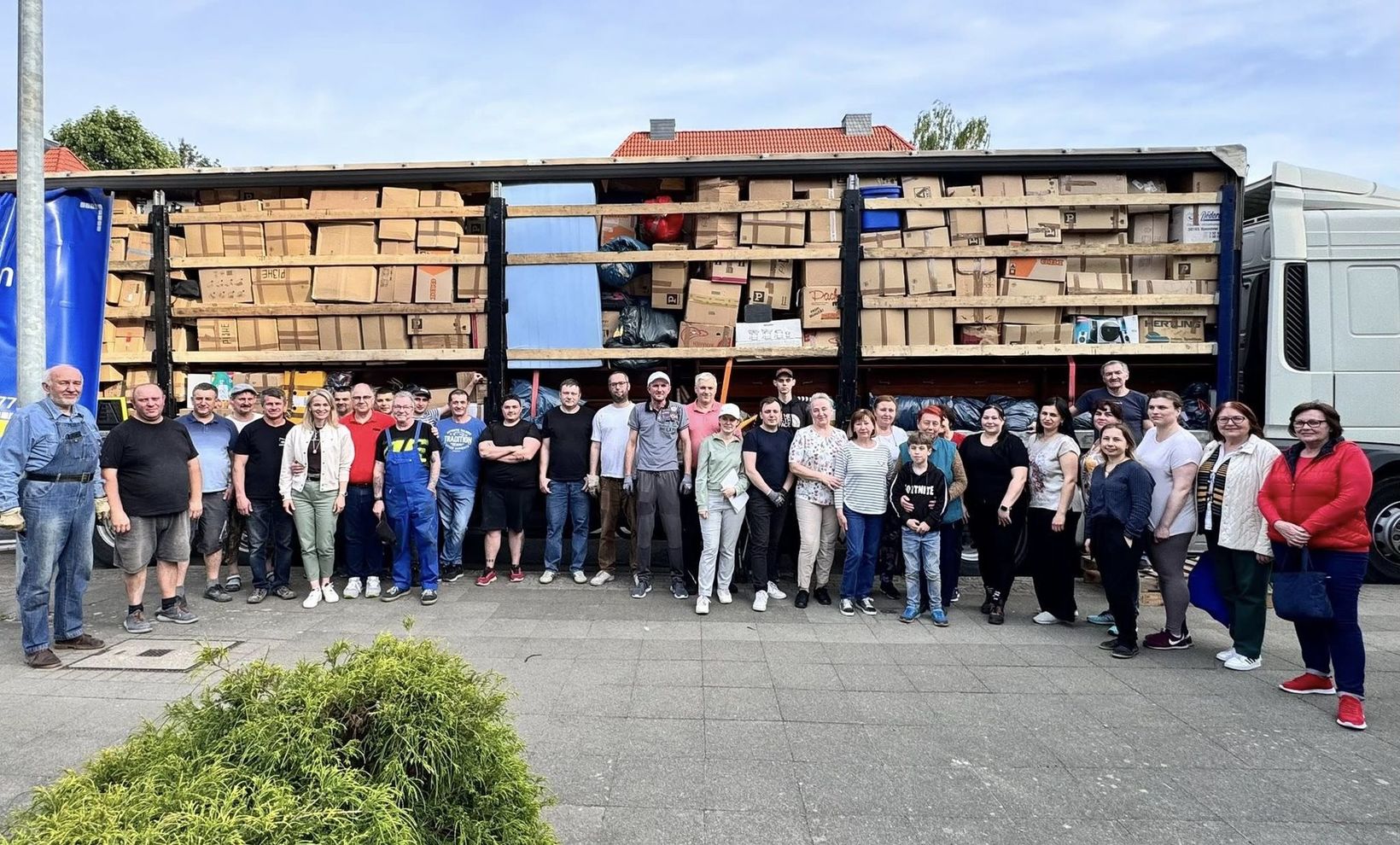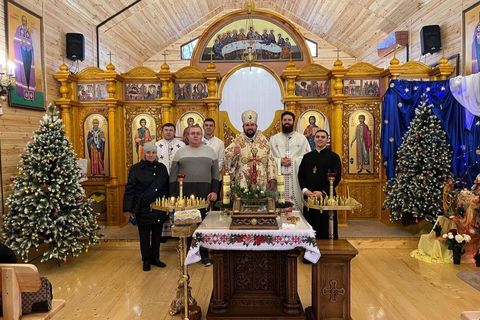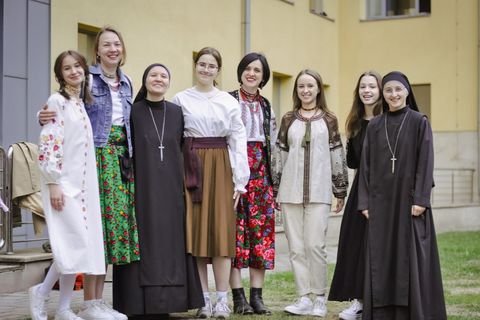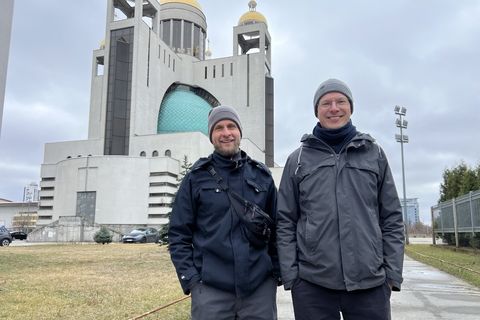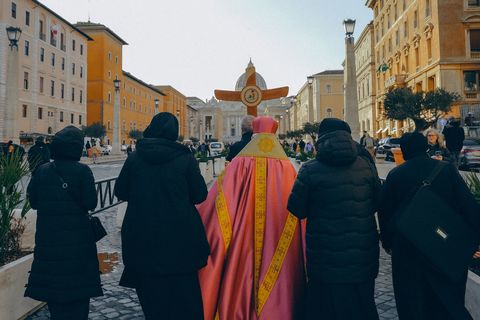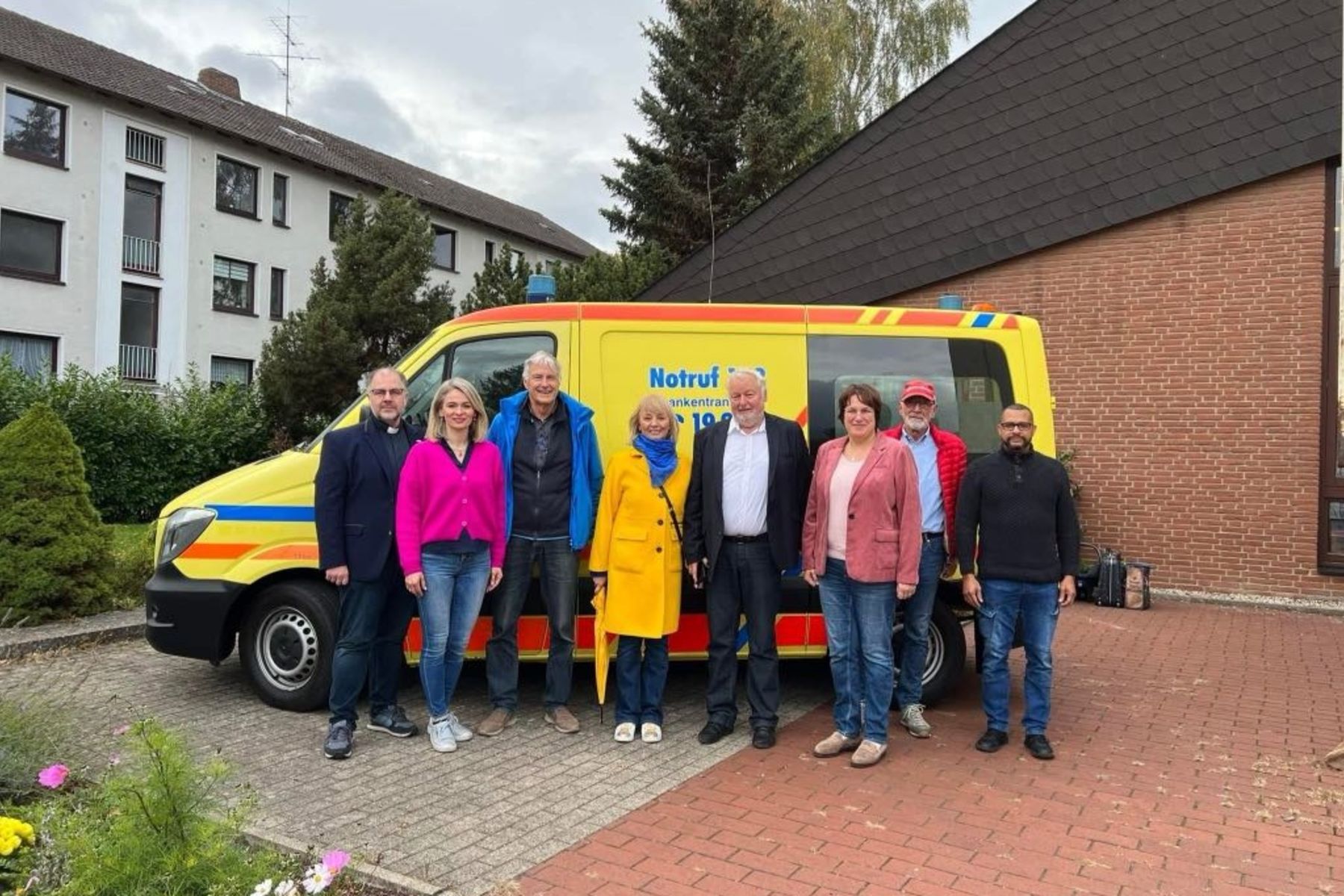
“Chariots of Life” from Hannover: How a UGCC Parish Became a Hub for Aid to Ukraine
The St. Volodymyr Parish of the Ukrainian Greek Catholic Church in Hanover (Germany) has become a key hub for humanitarian aid to Ukraine since the start of the full-scale invasion. Thanks to the dedication of parishioners and German partners, dozens of ambulances and medical supplies have been sent to help save Ukrainian lives.
Located in the streets of Hanover, St. Volodymyr Parish is one of the main centers of the Ukrainian community in Germany. Its strength lies in unity, trust, and tireless effort. Today, it is a well-known center of support for Ukraine among local residents and partner organizations. Its rector, Father Roman Maksymtsiv, explains how the community has grown into the vibrant and effective force it is today.
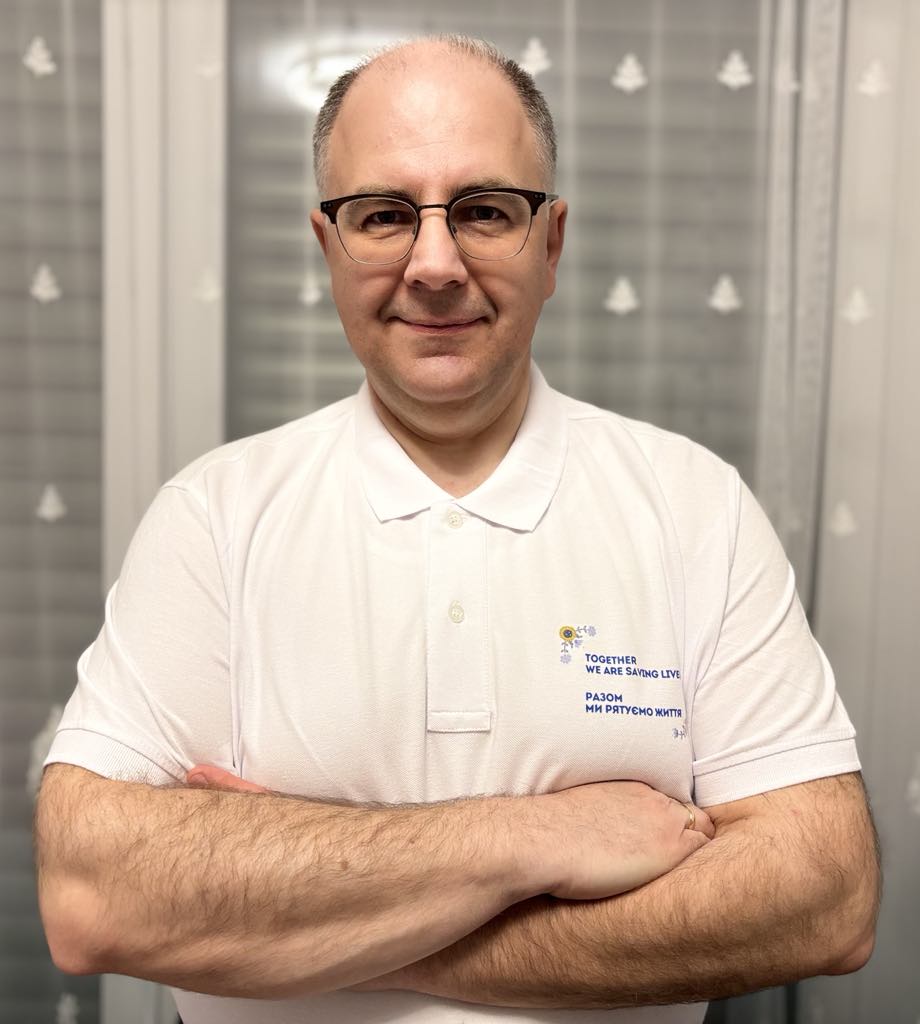 Photo: Father Roman Maksymtsiv
Photo: Father Roman Maksymtsiv
“This is one of the oldest Ukrainian communities in Germany,” says Father Roman Maksymtsiv, who has been serving here since 2004. According to him, its history dates back to the post-war years, when Ukrainians who remained in Germany after World War II gathered for prayer and chose St. Volodymyr as their patron saint. At the time, around 5,000 to 7,000 Ukrainians lived in Hanover and nearby areas. There were four deaneries and about 24 priests. Later, many Ukrainians emigrated to the United States, Canada, and Australia, and the community shrank to around 1,500 people.
A momentous event for the parish was the visit of Patriarch Josyf Slipyj between 1969 and 1972. Thanks to his efforts and the support of the German bishop, a church was built in Hanover in 1984, becoming a spiritual center for Ukrainians in the region.
From a Small Community to a Thriving Humanitarian Hub
When Father Roman Maksymtsiv arrived in Hanover, the parish had about 20 members, most of them elderly. “My ministry was to find young people and students, who had just started coming more frequently at that time,” recalls the priest. Over time, scientists, teachers, and doctors who had found work in Germany — and solace among fellow Ukrainians in the parish — joined the community. According to Father Roman, this new wave of people became an active source of support in his ministry.
The parish began its first steps in humanitarian work after the annexation of Crimea and the outbreak of war in Donbas in 2014. At first, it wasn’t easy — requests were sometimes ignored — but eventually, the transfer of medical beds, supplies, clothing, and food to Ukraine was successfully organized.
A Surge in Humanitarian Activity
When the full-scale war broke out in February 2022, the parish’s operations reached a new scale. “In the early days, we received such an overwhelming volume of humanitarian aid—food, hygiene products, diapers, clothing, medical equipment—that we sometimes dispatched four 40-ton trucks in a single day,” says Fr. Roman.
To support the effort, Toyota provided a forklift truck free of charge for a year and a half, which was parked next to the church. The number of volunteers grew to around 80, including not only Ukrainians but also Germans eager to help.
“In the first year of the full-scale invasion, we sent out more than 80 trucks. Last year, only six. But now, with a new wave of shelling, we’ve resumed our work and have already dispatched three trucks in the first few months of this year,” the priest explains.
Why specifically ambulances?
A special area of assistance has been focused on equipping Ukrainian medical facilities with ambulances and medical equipment. As Father Roman explains, this approach has practical advantages:
“We’re doing what we can—and what’s most needed. Our German partners are clear about what they’re willing to fund. Medical vehicles and equipment are a tangible and transparent area, where there’s accountability and the aid can be tracked,” explains the priest.
The parish sent its first ambulances in the fall of 2022. This initiative began with an unexpectedly successful charity marathon organized by a Catholic school in Hanover. Children ran laps around a stadium, and sponsors paid for each one. “We were all stunned—they raised €20,000, which allowed us to buy our first ambulance,” says the priest.
The parish purchases medical vehicles for €15,000—€20,000 each. They are typically 7–10 years old and have fewer than 250,000 kilometers on the odometer. “We try to donate vehicles that don’t require immediate repairs,” emphasizes Fr. Roman.
It is essential that the ambulances are fully equipped—with a wheelchair, stretchers, a defibrillator, a ventilator, and a suction device. This equipment, standard in Germany, is now saving lives in Ukraine.
A substantial portion of the funding comes from German partners—charitable organizations, members of the Evangelical Church, and even businesspeople who may not belong to any denomination but still want to help.
Aid Routes: from Lviv to Frontline Cities
The first recipient of medical vehicles was the Metropolitan Sheptytsky Hospital in Lviv.
“We decided to give priority to church institutions involved in saving lives,” explains Father Roman.
Subsequently, in cooperation with the Ukrainian Greek Catholic Church’s Commission on Pastoral Health Care, ambulances were sent to Mykolaiv, Kherson, Zaporizhia, Kharkiv, Dnipro, and Poltava.
A recent charity concert marking the third anniversary of the full-scale invasion deserves special mention. The event was organized by the Ukrainian Greek Catholic Church parish in cooperation with the German Rotary Club, which brings together influential figures—politicians, lawyers, executives, and medical professionals. This made it possible to invite renowned performers, who agreed to perform free of charge.
“We raised €57,000 at the concert, which allowed us to buy four ambulances,” the priest says proudly.
Volunteer Family
According to Father Roman, such large-scale assistance would be impossible without a core team of volunteers. Around 50 parishioners are actively involved in humanitarian initiatives.
“Of course, they all have jobs and their own responsibilities, but at least 25 people always come together when we’re loading trucks or preparing vehicles for departure,” says the priest.
Fr. Roman’s wife, Maria, plays a special role in this mission, personally accompanying most of the transports to Ukraine.
“I’m proud that she has taken on this task so courageously. Customs procedures at the border are constantly changing, so you have to be flexible and find your way through complex situations,” he adds.
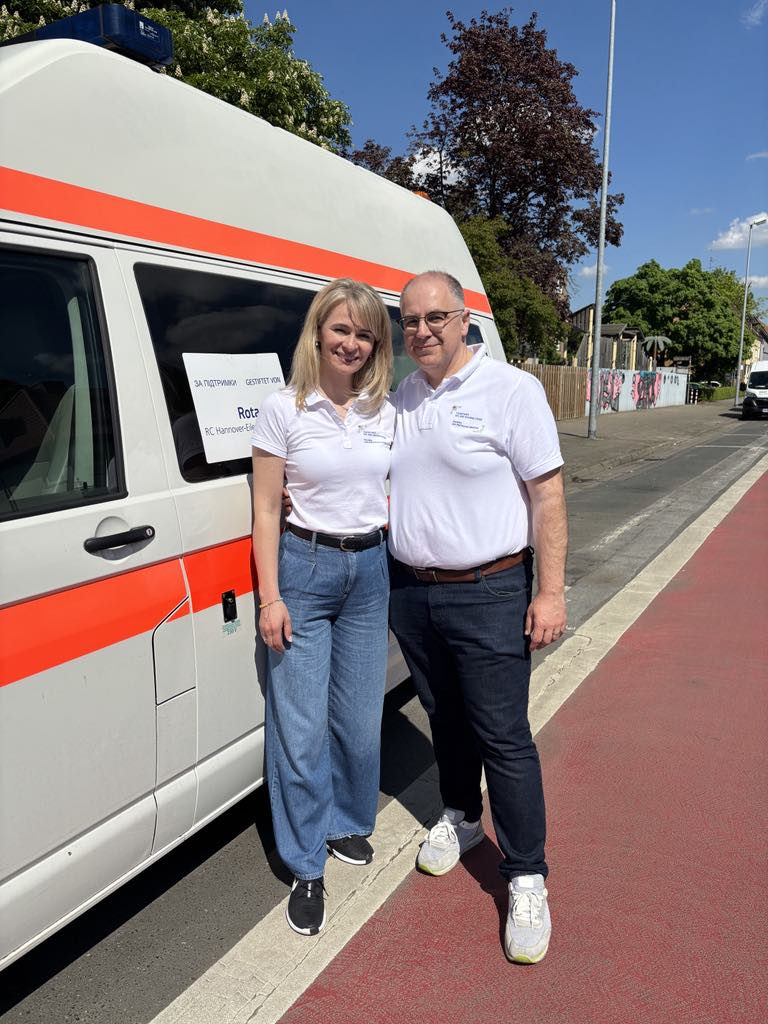 Photo: Father Roman with his wife, Maria
Photo: Father Roman with his wife, Maria
“God opens the hearts of many philanthropists.”
When asked how he inspires other parishes and communities, Fr. Roman replies, “This is the fruit of cooperation blessed by God. God opens the hearts of many philanthropists. Don’t be afraid to dream and get to work.”
The priest emphasizes the importance of united efforts: “Don’t hesitate to ask for advice or offer partnership. Our parishes abroad act as diplomats for Ukraine.”
The story of St. Volodymyr Parish in Hanover shows that even a small community can become a powerful hub for helping Ukraine. “If God wants to accomplish something through our hands, it will happen. Our parish is not large, but with God’s help, we are doing great things,” concludes Fr. Roman Maksymtsiv.
Vira ValchukThe UGCC Department for Information
Photos taken from Fr. Roman Maksymtsiv’s Facebook page
